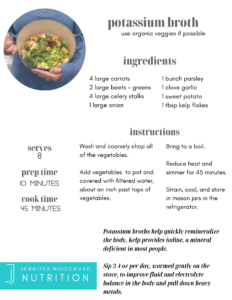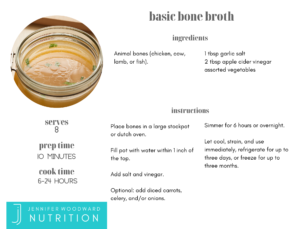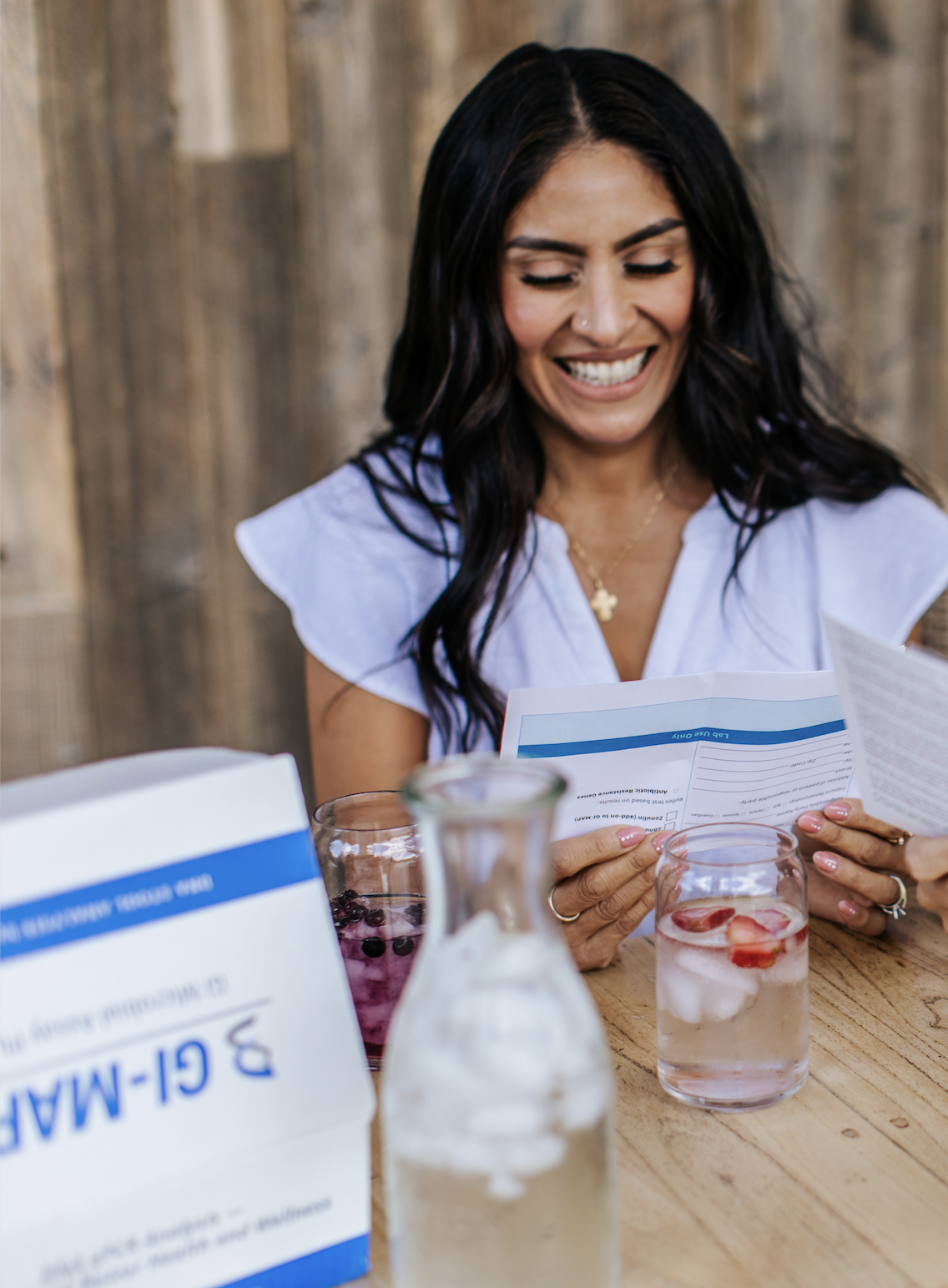Foods to Combat Hormonal Anxiety
It’s pretty common for women to struggle with either anxiety or depression. It’s kind of a sliding scale for many of us. One end of the scale is the wild, fluctuating, terrifying feeling of anxiety. The other end of the scale is the heavy, plodding, overwhelming feeling of depression. There is a sweet spot right in the middle. That’s where we feel balanced. Happy, even. But days where we feel happy and balanced are few and far between for many of us who have a constant struggle with mood issues.
When I ask my clients which end of the spectrum they tend to gravitate toward, their answer is usually anxiety. And no wonder. There’s a strong relationship between hormone imbalance and anxiety. The driving factor behind anxiety is almost always stress.
Two kinds of stress
There are two kinds of stress. One is outside stress that is actually perceived as stress. Think traffic, arguments, a difficult job or relationship, or being overscheduled and underpaid.
The other stress is inside stress. This happens when the body is inflamed due to poor nutrition or even malnutrition (very common among women with a history of dieting). Inside stress might also come from viruses like the Epstein Barr Virus, or gut infections like parasites or SIBO or worms, or food sensitivities.
Both of these kinds of stress can raise stress hormones in the body. The major stress hormones are adrenaline and cortisol.
Adrenaline is released from the adrenal medulla every time that you’re stressed. During times of stress, the sympathetic nervous system is stimulated and the body sends adrenaline to deal with the issue. Adrenaline increases heart rate, dilates your pupils, and spikes your blood sugar so that you can deal with whatever stressor is coming your way.
This is why, during times of prolonged stress, you might experience anxiety that manifests as a rapid heart rate and a sensitivity to light and sound. It’s an overstimulated sympathetic nervous system with too much adrenaline coursing through your blood, too often.
Cortisol is released, too, during times of stress. It is the stress hormone that keeps the party going. After the effects of adrenaline wear off, cortisol steps in. When the body and brain are under stress for long periods of time, the adrenal cortex continues to pump out cortisol to deal.
But here’s the rub- the body won’t release these hormones unless the brain tells it to. When stress signals are perceived by the eyes or ears, the amygdala (part of the brain) is activated. The amygdala is the part of the brain that is responsible for emotional processing. When danger is perceived by the amygdala, a distress call is sent to the hypothalamus. The hypothalamus is part of the brain that is responsible for telling the pituitary gland (another part of the brain) what hormones to mobilize in the body.
Low-level, persistent stress keeps these hormones in the bloodstream constantly. Naturally, when your body is flooded with stress hormones, you’l feel a little…stressed. Panicky. Anxious.
Food to the Rescue
Just kidding. That would be far too simplistic. I’ll tell you, there are no foods that can cure anxiety and it would be reductionistic of us to think so. I don’t want to throw out a half-assed statement like reduce anxiety by eating more blueberries, salmon, and flax! It is far better to focus on removing the sources of stress and anxiety.
On the emotional side, it’s a good idea to start saying no instead of saying yes all of the time. If we all stopped being so busy, we all might be a little less anxious. But we have to do it together, girls!
Get to bed by 10, and prioritize a good night’s sleep. (Can’t sleep? Set up a free Discovery Call with me here).
Get time in the sun, and spend as much time outside as you possible can each day. Eat outside. Work outside. Walk outside. Take meetings outside.
There are foods that can be a helpful support to a stressed body, though.
- Salt
- Potassium Broth
- Meat
Salt
When I ask my clients if they prefer sweet or salty foods, the answer is almost always salt! This makes sense. When a body is under stress for a long period of time, another adrenal hormone is released. It’s a mineralcorticoid called aldosterone, and it regulates salt and water in the body and also controls blood pressure.
The adrenal glands need plenty of sodium to maintain balance in the body. When sodium starts running low, you’ll notice that you get puffier. Maybe you can’t get your rings on and off anymore. Your ankles may start to swell, and your face might look bloated. Your blood pressure will be higher than it should be, and your heart rate might increase, too.
So, eat the salt! I recommend Selina Naturally Celtic Sea Salt.
I challenge my clients to get 1-3 tsp of high quality salt like this each day. Grey celtic sea salt is very high in calming minerals. You really can’t overdo natural salt if you are eating an ancestral, whole-foods diet. In fact, you might be deficient in salt if you are eating an ancestral, whole-foods diet as most whole foods don’t contain a ton of sodium. Let’s hear it for whole foods!
Without enough sodium, you’ll be depleted and anxious. Sodium has a very alkalinizing, balancing effect on the body. Worried about high blood pressure? If you’re restricting natural salt, you’re actually doing the exact opposite of what you should be doing.
According to expert Dr. Lawrence Wilson, “If you have a very high blood pressure, you may need to wait until you blood pressure drops, although a quality sea salt may actually assist in diminishing blood pressure by supplying vital minerals.” (source).
Eat the salt, especially if your anxiety is coupled with low energy, insomnia, or exhaustion. You need it.
Potassium Broth
An anxious body is a mineral-depleted body. Calcium and magnesium are the anxiety-busting superheroes of the mineral world, and are often talked about by the cool kids.
But potassium is like the little brother, the one who’s always kind of there, but left out of all of the important decision making and game playing.
Yet the family would not be complete without him. That’s potassium.
Potassium is an extremely calming mineral. Yet most of us don’t take in anywhere near the amount we should get. Adults need about 4700 mg of potassium daily, and most of us don’t get even half of that.
Fresh fruits and vegetables are high in potassium. Check out this list (source).
- Bananas, oranges, cantaloupe, honeydew, apricots, grapefruit (some dried fruits, such as prunes, raisins, and dates, are also high in potassium)
- Cooked spinach.
- Cooked broccoli.
- Potatoes.
- Sweet potatoes.
- Mushrooms.
- Peas.
- Cucumbers.
Now ask yourself, “how many of these foods am I getting daily?”
Bananas and potatoes? But I’m on keto!
Mushrooms, peas, and prunes? Not on my regular paleo menu!
Raisins and dates? I’ll get fat if I eat too many carbs!
But dears, you might be robbing yourself of vital, calming nutrients if you are too reductionistic with your diet. I don’t want that for you.
Avocados are also high in potassium. In fact, one medium avocado contains up to 900 mg of potassium (source).
Potassium helps regulate cortisol levels, and it also helps regulate fluid balance. It is associated with thyroid function. Low potassium? You can bet your ass that your thyroid function is going to be slow as well. Your thyroid is asking you for potassium broth.
And I’ll give you the recipe!
Each cup of potassium broth gives you about 1000 mg of potassium. If you’re anxious, load your broth up with salt and sip throughout the day.
See? Food to the rescue!
Meat
You knew I couldn’t get through a food-based blog post without mentioning ol’ reliable- meat. Remember: your ancestors all ate meat. Every one of them. Even our plant-based compadres agree with this.
The reason meat is such a powerful antidote to anxiety is that it is a very grounding food. According to Ayurvedic principles, heavy and grounding foods work to counterbalance light, airy, and panicky emotions.
That’s more art, but here’s the science:
When you eat meat, you get some amazing anti-anxiety compounds that are not found in plant foods.
Taurine
Taurine has been found to be beneficial for the control of anxiety (source). Taurine is an amino acid (meaning it is found primarily in meat!) that also regulates blood sugar, cholesterol, and triglycerides.
Again. Taurine is found in meat. If you look at most anti-anxiety supplements, you’ll see that taurine is an ingredient. Why? It calms the nervous system. Why pay for a supplement when you could just eat real, whole, nourishing food?
Taurine is found in the following foods:
- beef
- chicken
- turkey
- fish
- seafood (100 grams of scallops contain around 800 mg of taurine!)
Choline
Choline is an essential nutrient that acts similarly to B vitamins in the body. It is necessary for cell structure, fat transport and metabolism, DNA synthesis, and a healthy nervous system. Not a nervous nervous system.
A large clinical study (n= 5918) showed this interesting finding:
“The lowest choline quintile was significantly associated with high anxiety levels” (source).
Low choline? High anxiety. Not all of the time, of course. But if you suffer from anxiety, adding more whole-foods choline to the diet might be very helpful.
Here is where you can get choline:
- chicken
- salmon
- pork
- eggs
- beef
- shrimp
- (source)
Glycine
Glycine is an amino acid (read: meat) that is essential for building collagen. It also acts like a neurotransmitter, regulates blood sugar, and helps create glutathione, our body’s major antioxidant.
My favorite hormone maven, Dr. Lara Briden, recommends glycine for sleep issues in perimenopausal women. I regularly recommend it to clients and it does indeed seem to have an impact on sleep.
Glycine has anti-anxiety effects (source). I suspect this is why it is so helpful for sleep. It calms the stress response and decreases stress hormones in a manner sufficient enough to welcome sleep.
Glycine is found in organ meats and the nasty bits of the animal that most genteel ladies are not regularly consuming.
You can circumvent this issue by consuming bone broth, and plenty of it.
All that to say, I’m not here to be your moral compass on your diet. I will say that I have gotten to work with many, many women to reduce their anxiety. And these foods have been part of this rebalancing journey for most of them. Try adding them to your diet for 30 days and see how you feel.
What do you think? Do you suffer from anxiety? Are you willing to add some of these foods to your diet? Head over to Facebook and let me know!
Love,
Jennifer









